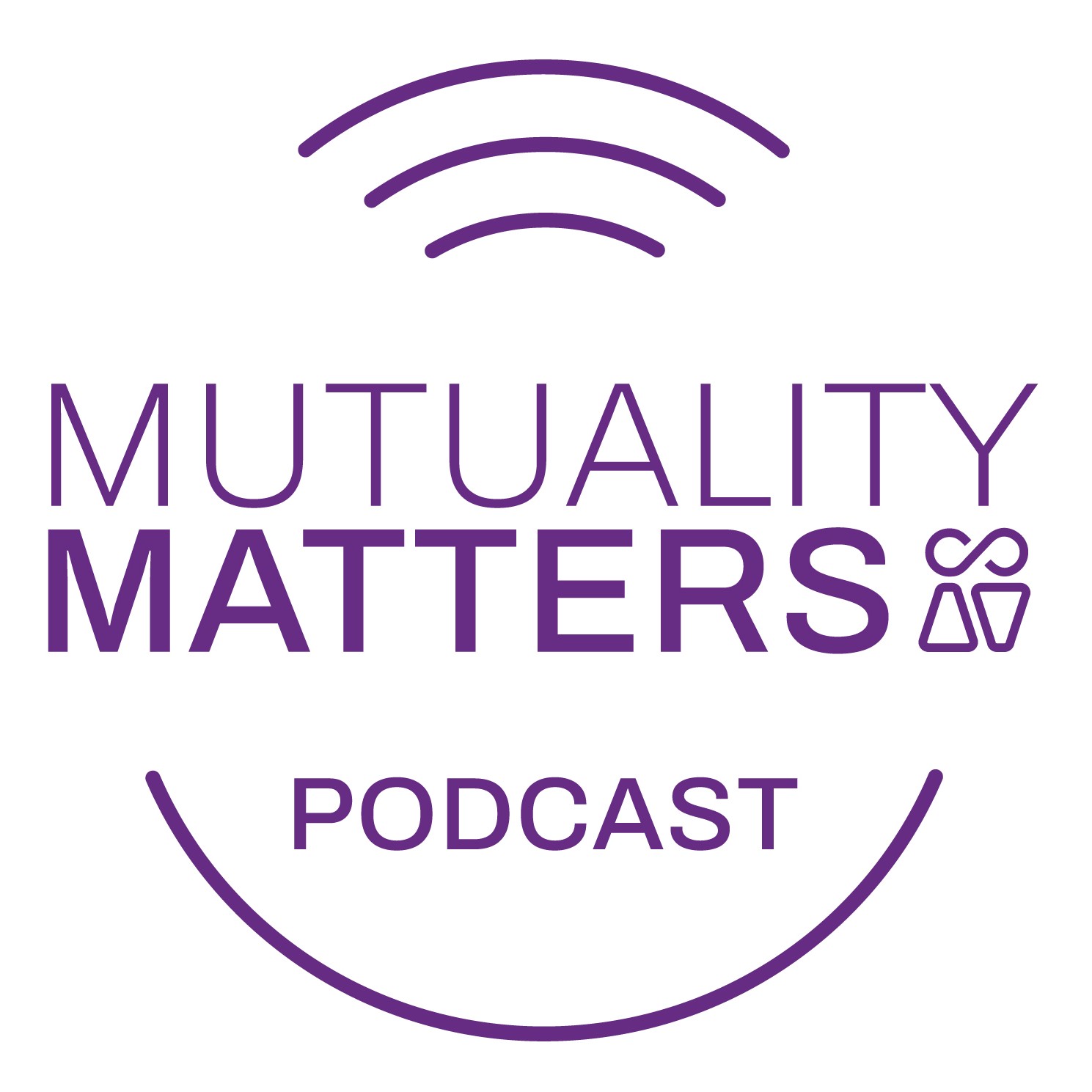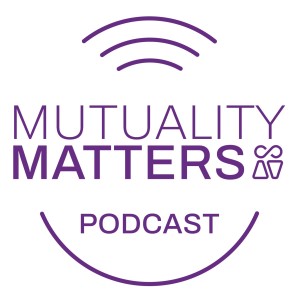
93.8K
Downloads
175
Episodes
Women, Men, Mutuality, and the Bible CBE’s Mutuality Matters podcast is part of CBE International’s online library of free resources! Hosts of CBE’s Mutuality Matters team offer weekly conversations with leaders, pastors, authors, scholars, activists, and humanitarians on women, men, shared leadership, and Scripture. CBE International (Christians for Biblical Equality) advances the gospel by equipping women and men of all cultures, races, and classes to lead and serve as equals. Founded in 1989, CBE has supporters and ministry partners in over 100 denominations and 65 countries, and offers annual conferences, adult and youth curricula, a curated bookstore, multi-media resources, award-winning publications, and a blog. Learn more at cbeinternational.org.
Episodes

Sunday Oct 08, 2023
Sunday Oct 08, 2023
Referring to the Genesis passages from Part 1, Havilah addresses the challenges of using all masculine for God, noting it’s impact on women and girls by assessing Genesis 2:18: “The Lord God said, “It is not good for the man to be alone. I will make a helper suitable for him.” Woman is too often described as “man’s helper or assistant.” But a more faithful treatment of the text would be woman as man’s “perfect comrade.”
Even more important, we tend to focus on God’s maleness, versus God as a motherly father, or God as fatherly Mother. An unfaithful and overuse of masculine language for God leaves women and girls wondering if they are, by comparison, somehow inferior. Sermons too often imply that God is more male than female with problematic outcomes. More attention is needed to focus on the feminine characteristics of God.
Consider Isaiah 42:14 (citing God): “For a long time I have kept silent, I have been quiet and held myself back. But now, like a woman in childbirth, I cry out, I gasp and pant.” And, if women preached more, these texts would come up and balance the preponderance of masculine language for God. This would be affirming to women and that God is beyond gender and uses both masculine and feminine images.
Havilah discussed some of her favorite passages like: Judges 4:4ff focused on Deborah. “Now Deborah, a prophet, the wife of Lappidoth, was leading Israel at that time.” CBE’s proposed translation of this verse is one you won’t want to miss! Deborah is a woman of flame! She goes on top of the mountain to signal the army to charge. She’s a leader, prophet, and a fiery woman. She an unstoppable leader. She is “high voltage!”
The Deuteronomy 22 text was also discussed as it describes the rape of a woman which the translations “soften” what actually happened. It is very vital to make vivid and real the facts: calling out the fact she was raped. NIV also takes this posture, but we make it more clear throughout the text that the real issue is sexual assault.
We discussed Exodus 21:10 as the text addresses a man who takes another wife again softening the experiences of the woman. But our translation brings out the power of the text to reveal with greater empathy the woman as well as the man in the text.
We end with a discussion on “strength” or chayil in Hebrew in the book of Ruth. Chayil, Havilah points out, refers not only to strength but as status in the community. Boaz is described throughout the book of Ruth as a man of status or respect. And in Chapter 3, Boaz speaks to Ruth telling her she is a chayil a woman of strength. This is astonishing because as a Moabite, she was not even permitted to enter the community of Israel. They were viewed as an incestuous people. Yet Boaz calls Ruth chayil one who is outstanding in the community even as she reached out to him in the cover of night. But because she did so as a loyal daughter-in-law, who worked to protect and preserve the life of her mother-in-law (Naomi), she too deserves the status of chayil.
Havilah ends her discussion with the Proverbs 31 woman as a leader a chayil.
Guest Bio:
Dr. Havilah Dharamraj currently serves as academic editor of CBE’s award-winning academic journal, Priscilla Papers. She is a Langham Scholar and has for years pioneered a better biblical understanding of women in Scripture. Currently Havilah heads CBE’s chapter in India. She holds a PhD in Old Testament, from the University of Durham, UK. Her research interests are Old Testament and Comparative Literature. She is faculty at the South Asia Institute for Advanced Christian Studies, India. With an interest in biblical narrative, she encourages the use of storytelling in the pulpit. She is author of various articles, commentaries, and monographs, as well as an editor of the South Asia Bible Commentary (Zondervan, 2015) and the forthcoming South Asia Study Bible. Havilah writes and speaks for CBE. She received CBE’s Lifetime Achievement award in 2019.
Havilah Dharamraj’s Publications
Books: Authored and co-authored
- Altogether Lovely: A Thematic and intertextual Reading of the song of Songs
- Ruth: A Pastoral and Contextual Commentary (Asia Bible Commentary
- A Prophet Like Moses?: A Narrative—Theological Reading of Elijah Stories
- Five Views of Christ in the Old Testament: Genre, Authorial Intent, and the Nature of Scripture (Counterpoints: Bible and Theology)
- Challenging Tradition: Innovation in Advanced Theological Education (ICETE Series)
Havilah Dharamraj’s Articles
Havilah Dharamraj’s CBE YouTube Lectures:
Disclaimer:
The opinions expressed in CBE’s Mutuality Matters’ podcast are those of its hosts or guests do not purport to reflect the opinions or views of CBE International or its members or chapters worldwide. The designations employed in this podcast and the presentation of content therein do not imply the expression of any opinion whatsoever on the part of CBE concerning the legal status of any country, area or territory or of its authorities, or concerning the delimitation of its frontiers.

No comments yet. Be the first to say something!